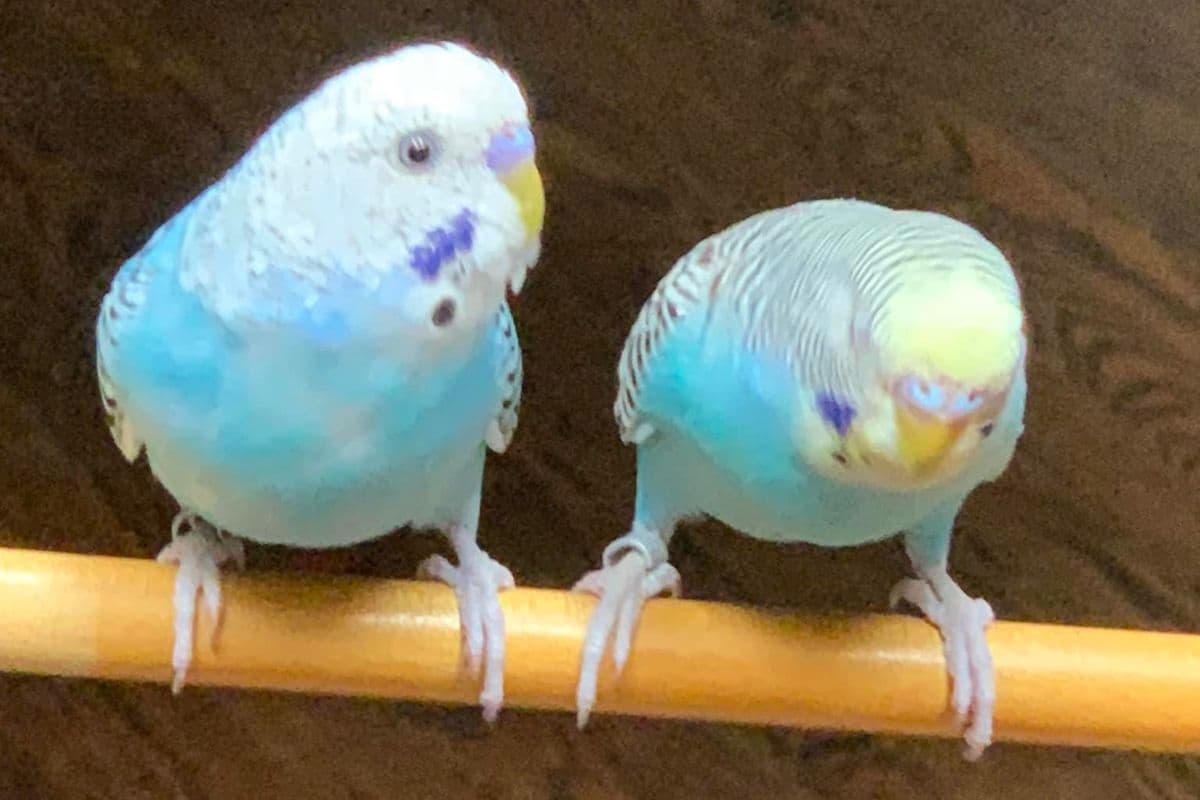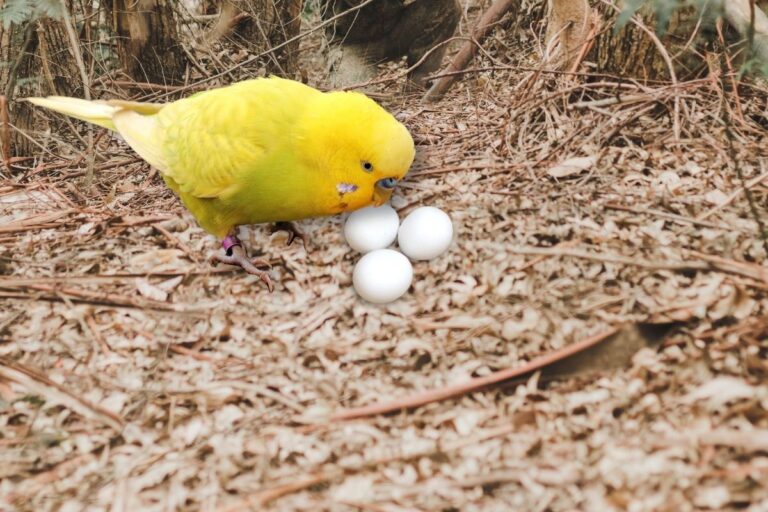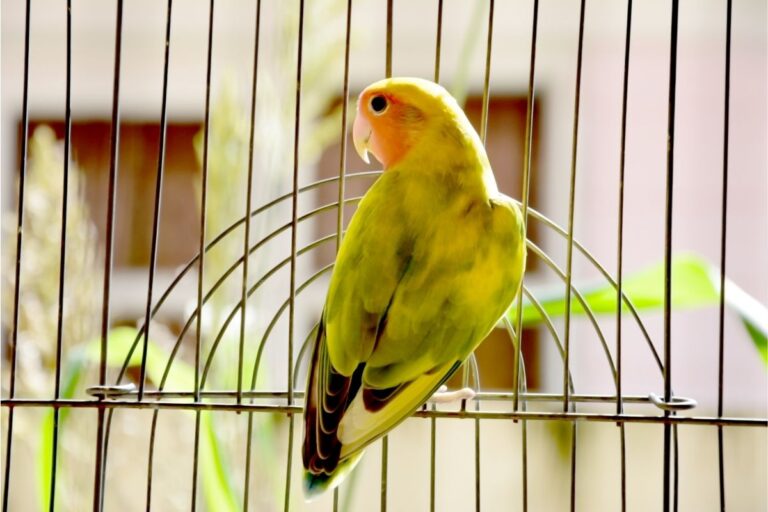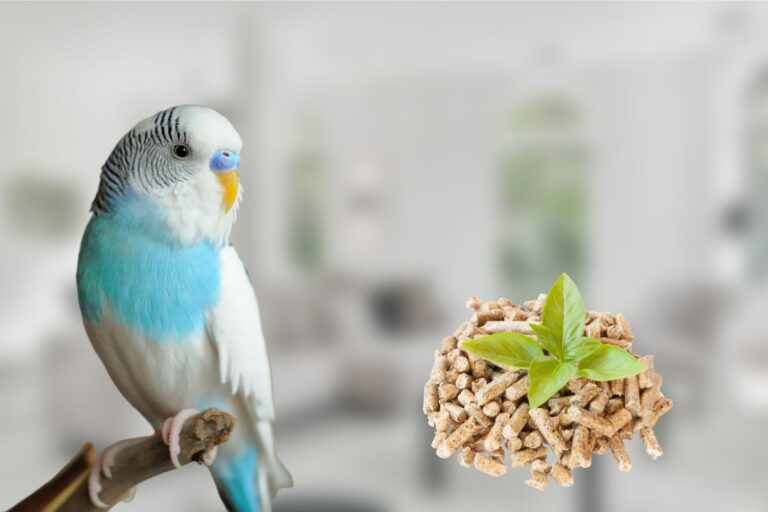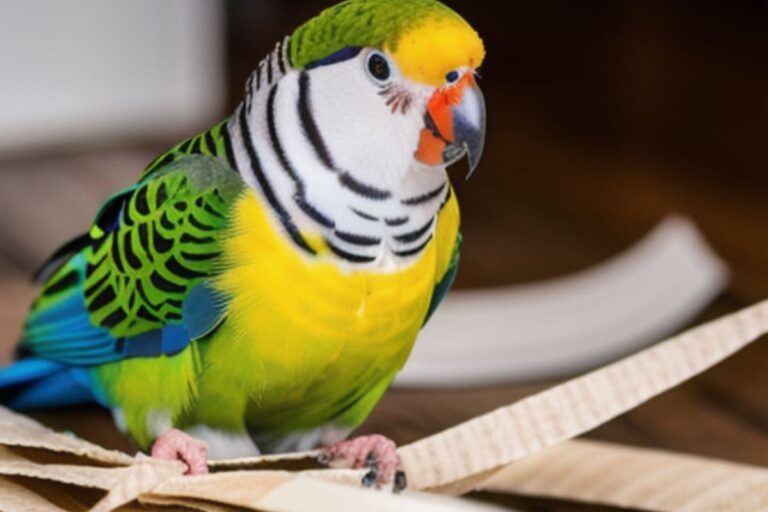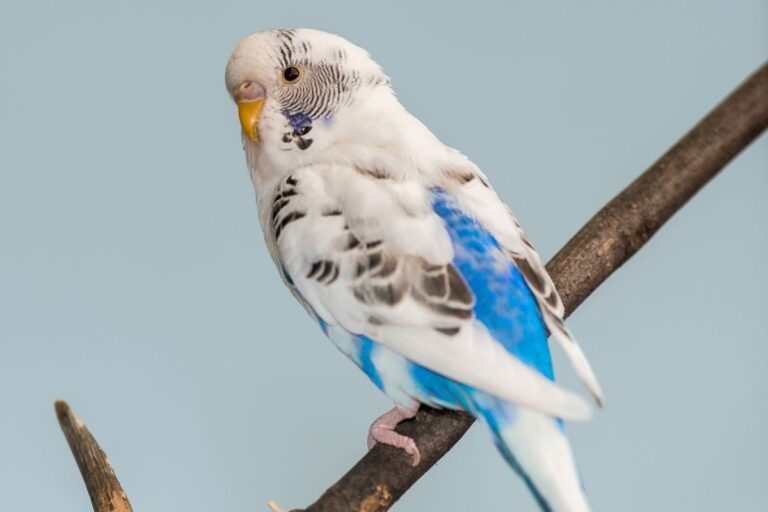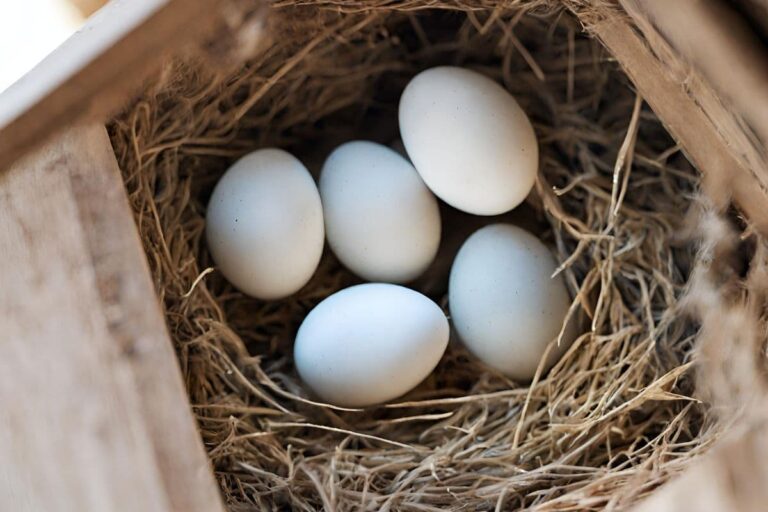Why is My Parakeet Breathing Fast
Disclosure: The opinions expressed in this post are my own. This post may also contain affiliate links, which means that I will receive a commission if you decide to purchase through my links, at no additional cost to you. As an Amazon Associate, I earn from qualifying purchases.
If you own a parakeet, you know how important it is to keep an eye on their health. One concerning behavior is when your parakeet is breathing fast. A parakeet’s respiratory system is fragile, so it’s essential to understand the possible causes of fast breathing and how to address it.
In this article, we’ll explore the possible causes of fast breathing in parakeets and what you can do to help them. We’ll also provide some tips on how to prevent respiratory issues in your parakeet in the future. By the end of this article, you’ll have a better understanding of your parakeet’s health and how to keep them happy and healthy.
Why is My Parakeet Breathing Fast?
There are several reasons why your parakeet might be breathing fast, from being excited, to stress, illness, or environmental factors. It’s crucial to observe your parakeet’s behavior and environment to identify any potential triggers. If your parakeet is breathing fast, it’s essential to take action quickly to ensure their health and well-being.
If you notice your parakeet breathing fast for an extended period of time or exhibiting other concerning symptoms, it’s always best to consult with a veterinarian. Don’t ignore fast breathing as it could be a sign of a serious health issue.
Let’s take a look in detail at some of the common reasons why your parakeet is breathing fast.
1. Overheated or Heat Exhaustion
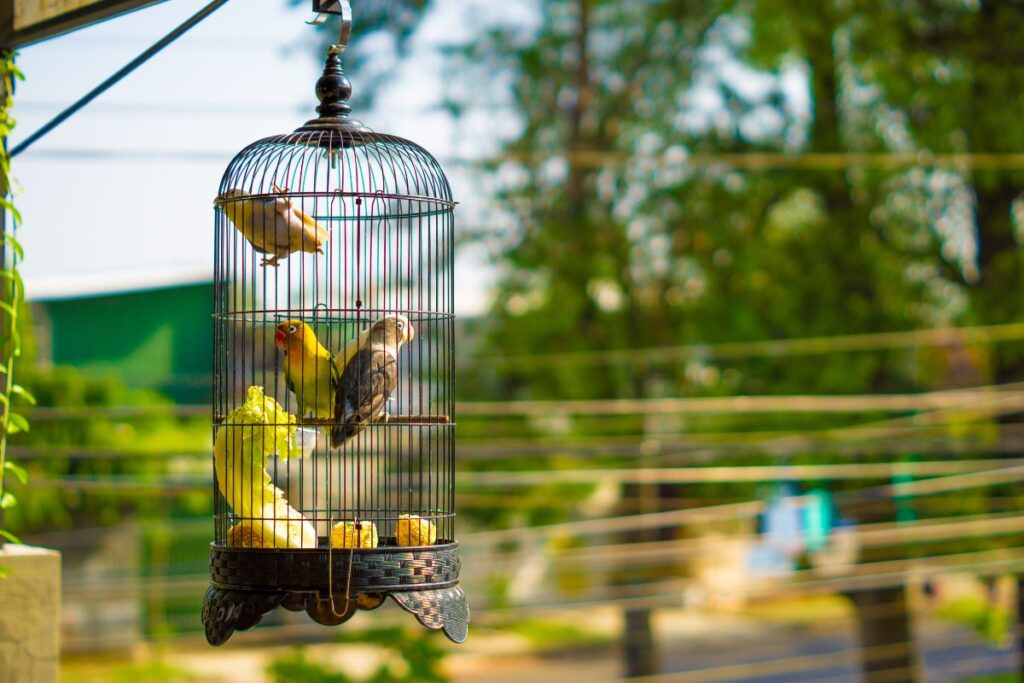
If you notice your parakeet breathing fast, it could be a sign of overheating or heat exhaustion. Parakeets are sensitive to heat and can easily become overheated if they are in an environment that is too warm.
To prevent overheating, make sure your parakeet’s cage is in a cool, well-ventilated area and avoid placing it in direct sunlight or near heat sources such as radiators or heaters. Additionally, provide your parakeet with fresh water and mist them with a spray bottle to help them cool down.
Heat exhaustion can be a serious condition that requires veterinary attention. Symptoms of heat exhaustion in birds include heavy breathing, lethargy, and loss of appetite. If you notice these symptoms, take your parakeet to a veterinarian as soon as possible.
2. From Symptoms of Being Sick, Having an Infection or Respiratory Diseases
If your parakeet is breathing fast, it could be a sign of being sick, having an infection or respiratory diseases. Other symptoms to look out for include sneezing, coughing, wheezing, and discharge from the eyes or nostrils.
Infections can be caused by bacteria, viruses, or fungal infections and can lead to serious health problems if left untreated. It’s important to take your parakeet to the veterinarian as soon as possible for the proper treatment if you notice any of these symptoms.
Respiratory diseases such as pneumonia, bronchitis, asthma or issues with the respiratory tract can also cause fast breathing in parakeets. These diseases can be caused by environmental factors such as dust, mold, or cigarette smoke, as well as poor nutrition or stress.
If you suspect your parakeet has a respiratory disease, it’s important to take them to the veterinarian for proper diagnosis and treatment. Treatment may include antibiotics, anti-inflammatory medications, or changes in diet and environment.
Prevention is key in keeping your parakeet healthy. Make sure their cage is clean and well-ventilated, and provide them with a balanced diet and plenty of fresh water. Regular check-ups with a veterinarian can also help catch any potential health issues early on.
3. Stressed or Anxious
Another reason could be a sign of stress or anxiety. Parakeets can become stressed or anxious for a variety of reasons, including changes in their environment, lack of socialization, or the presence of predators or other animals in the home.
If you suspect that your parakeet is stressed or anxious, it’s important to try to identify the source of their anxiety and address it. This may involve making changes to their environment, providing them with more socialization and interaction, or removing any potential sources of stress or anxiety from their environment.
If your parakeet’s breathing continues to be fast or labored, or if you notice any other concerning symptoms, it’s important to consult with a veterinarian to rule out any underlying health issues.
4. Scared or Fearful
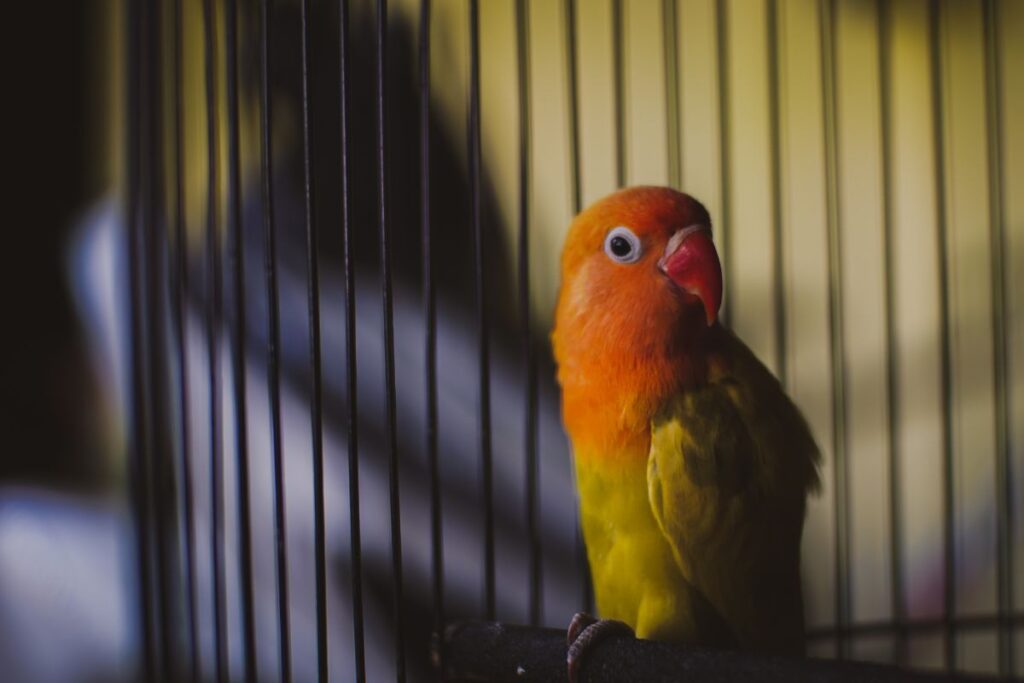
Loud noises, sudden movements, or even the presence of a new person or pet in the room can cause your parakeet to feel uneasy, resulting in them in being scared or fearful.
To help your parakeet feel more comfortable, try to create a calm and quiet environment for them. Avoid sudden movements or loud noises that could startle them.
Provide your parakeet with a safe and secure space, such as a covered cage or a quiet room where they can retreat if they feel scared or threatened.
If your parakeet continues to breathe fast or shows other signs of distress, such as fluffed feathers or a lack of appetite, it may be best to consult with a veterinarian to rule out any underlying health issues.
5. Just Exercised
If your parakeet has just exercised, it is normal for them to breathe faster. This is because they are working to increase their heart rate and respiration to get more oxygen to their muscles. However, if your parakeet is breathing fast at rest, it could be a sign of respiratory distress or illness.
It’s important to monitor your parakeet’s breathing and overall behavior to ensure it goes back to normal. If it does not go down after a while, or if you notice other symptoms such as lethargy, loss of appetite, or discharge from their nose or eyes, it’s best to consult with a veterinarian.
Signs of Breathing Difficulties in Parakeets
It’s important to be aware of the signs of breathing difficulties in your parakeet. This is because breathing problems can quickly escalate and become life-threatening if not addressed promptly. Here are some signs to look out for.
1. Rapid Breathing
One of the most common signs of breathing difficulties in parakeets is rapid breathing. Rapid breathing, also known as tachypnea, can be caused by a variety of factors such as respiratory infections, allergies, or even stress.
2. Wheezing Sounds
The presence of wheezing sounds is a tell-tale sign of breathing difficulties in parakeets. These sounds can be described as raspy or labored breathing, and may be accompanied by other symptoms such as coughing or sneezing.
3. Open-Mouthed Breathing
Another obvious signs of breathing difficulties in parakeets is open-mouthed breathing. This is when a bird is breathing with its beak open, and it can be a sign of a serious respiratory problem.
Parakeets normally breathe with their beaks closed, and if you notice your bird breathing with its mouth open, it’s important to take action immediately. This could be a sign of a respiratory infection, or it could be a symptom of a more serious condition such as pneumonia or a blockage in the airway.
4. Gasping for Air
When your parakeet appears to be struggling for breath, you may notice their beak opening and closing rapidly. Gasping can be a sign of a serious respiratory problem and should be addressed immediately.
5. Coughing
If your parakeet is coughing frequently or has a persistent cough, it may be a sign of respiratory distress. Coughing can be caused by a variety of factors, including infections, allergies, or irritants in the environment.
6. Fluffed Up Feathers
When a parakeet is having trouble breathing, they may fluff up their feathers in an attempt to conserve body heat. This is because their body is working harder to try and get enough oxygen, which can cause them to feel cold.
Fluffed up feathers are not always a sign of breathing difficulties, but they can be a warning sign. If your parakeet is exhibiting this behavior, you should observe them closely and look for other signs of respiratory distress.
7. Lethargy
If you notice that your parakeet is not as active as usual, or it may be sitting on the bottom of the cage instead of perching, it could be feeling lethargic, and one of the causes could be from having abnormal breathing. It may also have a reduced appetite and may not be interested in playing or interacting with you.
Lethargy is a common symptom of respiratory problems in birds, and it may indicate that your parakeet is not getting enough oxygen.
8. Tail Bobbing
Tail bobbing occurs because your bird is using its posterior muscles to force air in and out of its lungs. These muscles are located at the base of the tail and are responsible for moving the tail up and down. When your bird is breathing rapidly, these muscles are working overtime to help your bird breathe. It may be subtle or noticeable depending on the severity of the breathing difficulty.
Tail bobbing could be a sign that your parakeet is struggling to breathe properly and may be caused by a variety of issues such as respiratory infections, allergies, or even heart problems.
Ways to Prevent and Recover from Heavy Breathing in Parakeets
If you notice your parakeet breathing heavily, there are a few things you can do to prevent it from happening in the future.
But first, you need to be very sure that the cause of heavy breathing or panting is from anxiety or stress related issues, and not from illness, diseases or other serious health issues.
Here are some ways to reduce their stress and help them recover or prevent this from happening again in the future.
Ensure Their Surroundings are Calm and Soothing
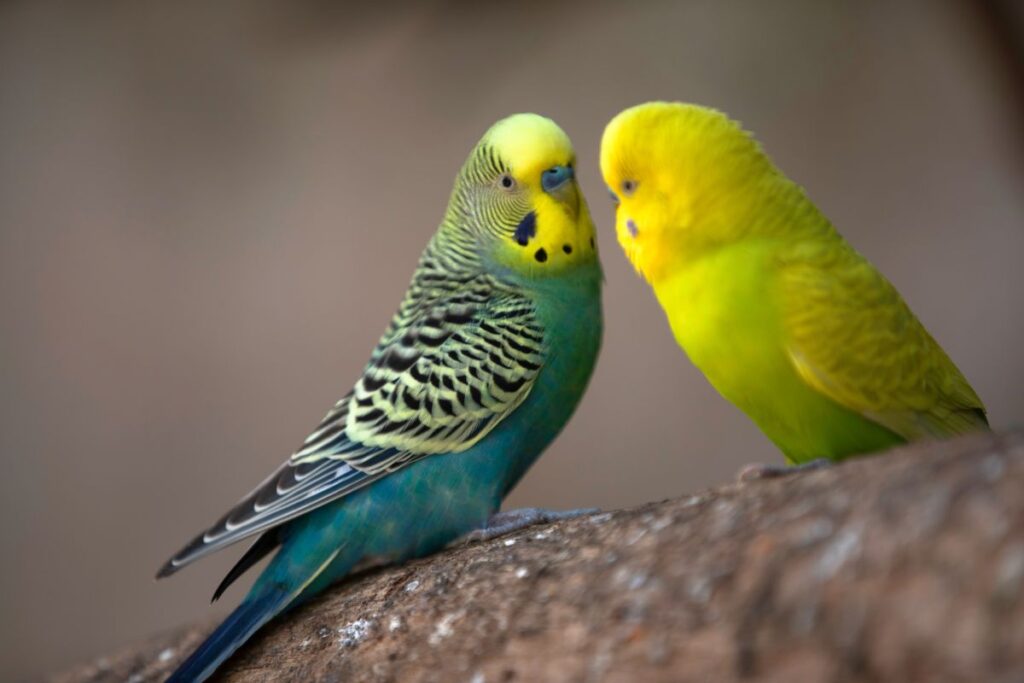
One of the methods for preventing heavy breathing in parakeets is to ensure that their surroundings are calm and soothing. This means that you should avoid loud noises and sudden movements around your parakeet’s cage, as this can cause them to become stressed and start breathing heavily.
You should also make sure that your parakeet’s cage is located in a quiet area of your home, away from high traffic areas and other pets. This will help to minimize the amount of stress that your parakeet experiences on a daily basis.
Ensure Temperatures are Appropriate
It’s important to ensure that the temperature in your parakeet’s environment is appropriate to prevent heavy breathing. Parakeets are sensitive to temperature changes and can easily become stressed if the temperature is too hot or too cold.
To maintain the appropriate temperature, make sure that your parakeet’s cage is not near any drafty areas or direct sunlight. It’s also important to keep the cage away from air conditioning or heating vents.
Use a thermometer to monitor the temperature in the room where your parakeet is kept. The ideal temperature range for parakeets is between 65-75 degrees Fahrenheit.
If the temperature is too hot, you can use a fan or air conditioning to cool the room down. If the temperature is too cold, you can use a space heater or cover the cage with a blanket to trap in heat.
By ensuring that the temperature is appropriate, you can prevent heavy breathing in your parakeet and keep them healthy and happy.
Identify What Causes Their Fear and Remove Contact With It
Another way to prevent heavy breathing in parakeets is to identify what causes their fear and remove contact with it. Common causes of fear in parakeets include loud noises, sudden movements, and unfamiliar people or animals.
To identify the source of your parakeet’s fear, observe their behavior and body language. If they fluff up their feathers, cower in the corner, or try to fly away, they may be experiencing fear.
Once you have identified the source of your parakeet’s fear, take steps to remove contact with it. For example, if your parakeet is afraid of loud noises, try to keep them in a quiet room or cover their cage with a blanket during loud events.
You can also try desensitizing your parakeet to their fear by gradually exposing them to it in a controlled environment. For example, if your parakeet is afraid of unfamiliar people, introduce them to new people slowly and in a calm setting.
Always Have Fresh Water Available for Them to Keep Hydrated

Ensure that your feathered friends always have access to fresh water. Parakeets are very active birds, and they need to stay hydrated to maintain their health. If they don’t have enough water, they may start breathing heavily and exhibit other signs of dehydration, such as lethargy and loss of appetite.
To keep your parakeet hydrated, make sure that you change their water regularly. Ideally, you should change their water at least once a day, or more often if the water becomes dirty or contaminated. You should also provide your parakeet with a water bottle or a water dish that is large enough for them to drink from comfortably.
Ensure They Get Regular Exercise
An effective way to reduce the occurence of heavy breathing in parakeets is to ensure that they get regular exercise. This can be achieved by providing them with plenty of toys and perches to climb and play on.
Another way to encourage exercise is to let them out of their cage for a few hours each day to fly around and stretch their wings. This will not only help with their breathing, but it will also keep them mentally stimulated and happy.
It’s important to note that parakeets are active birds and need plenty of space to move around. If their cage is too small, they may become bored and lethargic, which can lead to breathing problems.
Provide Them With a Healthy Diet
It’s important to provide your parakeets with a healthy diet. This means feeding them a variety of fresh fruits, vegetables, and high-quality birdseed.
Avoid feeding your parakeet foods that are high in fat, sugar, or salt, as these can lead to obesity, health problems and respiratory issues.
Final Words
After all that’s been said, if you still notice that your parakeet is breathing fast, it’s important to take action immediately, as this could be a sign of a serious health issue, and delaying treatment could have dire consequences for your feathered friend.
It’s always better to err on the side of caution, so don’t hesitate to take your parakeet to the vet for immediate medical attention if you’re concerned about their breathing. Remember, birds are incredibly sensitive creatures, and they rely on us to take care of their health and well-being.
By staying vigilant and taking action when needed, you can help ensure that your parakeet lives a long, happy life as a beloved member of your family.



